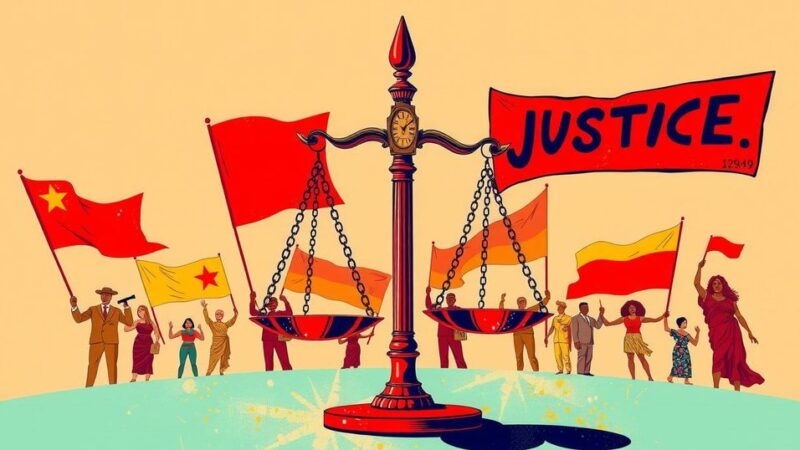The U.S. State Department insists on high standards of diplomatic respect, following the expulsion of South African ambassador Ebrahim Rasool. His comments on President Trump led to his designation as “persona non grata.” The Trump administration’s policy toward South Africa reflects deeper concerns about geopolitical relations and domestic legislation. This situation signals a need for clarity and respect in diplomatic engagements.
The U.S. expects a high standard of respect from other nations, as articulated by State Department spokesperson Tammy Bruce. During a press briefing, she emphasized that America “deserves better” diplomatic relations and called for a representative capable of fostering constructive dialogue. This statement comes in light of the expulsion of Ebrahim Rasool, the South African ambassador to the U.S., who was declared “persona non grata” following remarks about President Trump’s administration.
Bruce further explained that Rasool’s expulsion was communicated by Secretary of State Marco Rubio, labeling him a “race-baiting politician” while he also criticized Trump’s administration. Rasool previously described Elon Musk’s connections with far-right figures as a “dog whistle” for the embattled white community and stated advice for dealing with the administration was crucial, saying, “This is not the moment to antagonize the United States.”
The protocol for Rasool’s expulsion involved an in-person meeting with South African embassy representatives, where officials delivered the notification of his diplomatic status. Bruce expressed that the comments made by Rasool were deemed unacceptable and emphasized that such remarks reflect poorly on the standards expected from diplomats. She confirmed that Rasool’s diplomatic privileges lapsed three days after the notice, obligating his departure from the U.S.
Rubio’s action against Rasool is part of a broader strategy adopted by the Trump administration towards South Africa. Previous executive actions included Trump’s controversial statement regarding South Africa’s white minorities amid legislative changes to land ownership policies in the country. The U.S. administration has expressed that South African policies allegedly discriminate against white farmers, a claim the South African government disputes, stating that the legislation targets non-productive land and serves public interests.
Furthermore, U.S. assistance to South Africa has been halted as part of a review of foreign policy, influenced by South Africa’s international alliances with countries such as Russia and Iran. Bruce noted that these geopolitical dynamics raise concerns about global security and prosperity. She reiterated that the U.S. aims not to punish but to encourage positive changes in South Africa’s policies and behavior toward allies.
In light of recent events, it is evident that diplomatic standards play a crucial role in international relations, as highlighted by the U.S. State Department. The expulsion of Ebrahim Rasool underscores the requirement for diplomats to maintain respectful dialogue. Broader geopolitical and policy concerns further shape the U.S. approach toward South Africa, emphasizing the necessity for constructive relations and an accurate interpretation of international events.
Original Source: allafrica.com






